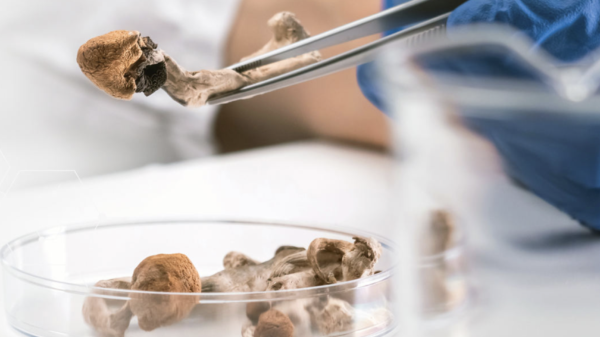Psilocybin-assisted therapy has been shown to help with depression, but it’s even more effective if the therapist has experienced the substance’s effects themselves, according to a study by researchers at the State University of New York.
The new research, published in the Journal of Psychoactive Drugs, found that a therapist’s personal experience with psilocybin is more important than other factors that enhance the patient-therapist relationship, such as going through depression and receiving therapy themselves, as well as sharing gender or ethnicity with the client.
The study surveyed hundreds of people’s responses on what elements of psilocybin-assisted therapy are important for a client. It found that on a scale from 0–100 the importance for a therapist to have tried psilocybin was over 63, much higher than the “somewhat important” rating of 50.
The researchers explain that therapies benefit most when they align with client preferences, which is reasoning that could relate to social psychological theories, as humans tend to like others whom they perceive as similar.
“They also might prefer a guide who has had a comparable experience to ensure empathic interactions, which lead to better treatment outcomes for depression,” reads the study.
Participants reported they may also want a therapist or guide who has gone through the ineffable experience that acute high doses of psilocybin can create.
“Developing treatments with empirical support that can appeal to those who might need them most has considerable potential for limiting human suffering.”
Read more: Vancouver Island University to launch Canada’s first psychedelic-assisted therapy graduate program
For the study, 803 subjects were surveyed on their therapy preferences between Dec. 5 2020 and Jan.13, 2021, on Amazon’s crowdsourcing platform MTurk. Participants rated the importance of different factors such as the therapist’s personal experience with mental health, gender, ethnicity and use of other substances.
Researchers suggest that other competence areas should be considered when conducting psilocybin-assisted therapy such as empathy, commitment to ethics, a familiarity with physiological and psychological effects of psychedelics, personal self-awareness as well as comfort in discussing spirituality.
“Given these recommendations, the fact that only Canada has formally approved psilocybin use for guides suggests that others may re-examine policy for proper training.”
In February, Mugglehead asked Health Canada about why it was denying applications for therapists trying to access psilocybin for training purposes. The agency said the best way for practitioners to access psilocybin is to sign up for clinical trials.
In January, ATMA Journey Centers Inc. said it had been granted a no-objection letter regarding its first sponsored trial, which is looking into the safe use of synthetic psilocybin in healthy, licensed healthcare practitioners enrolled in psychedelic-assisted therapy programs.
Follow Natalia Buendia Calvillo on Twitter
natalia@mugglehead.com














